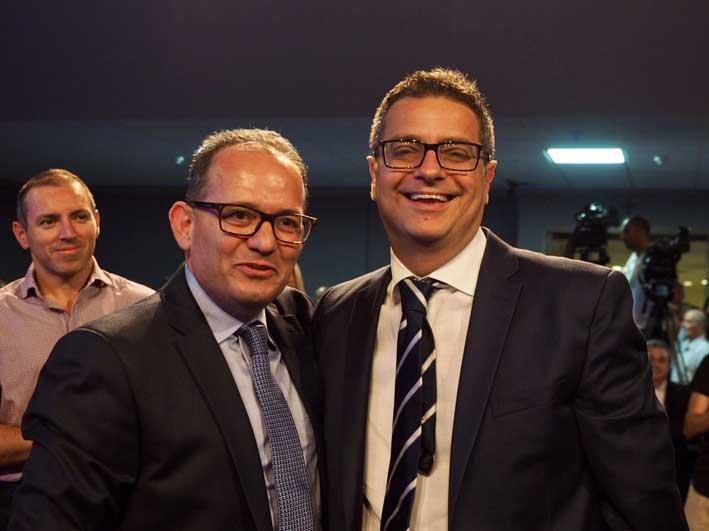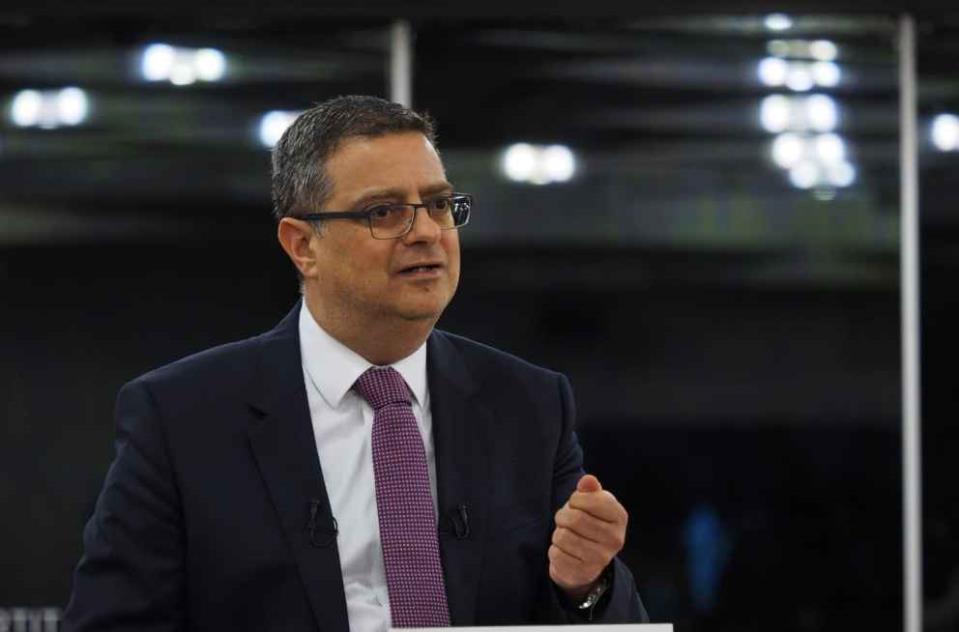So the Nationalist Party will have another election for the leadership.
It will be the third time in the last seven years that the PN will go through the process of naming its leader. Simon Busuttil won in 2013, Adrian Delia won in 2017, and now, just three years later, it will have to do it all over again.
Between 1950 and 2013 – a long 63 years – the Nationalist Party had just three leaders, George Borg Olivier, Eddie Fenech Adami and Lawrence Gonzi. The first two were leaders for more than a quarter century each. Having a third election for the leadership in seven years just shows the level of confusion that has reigned in the PN since it lost the 2013 election. The PN could still end up with the same leader, since Delia is one of the contestants; again, it shows how mixed up the situation is.
Whatever the outcome of the exercise, a reconciliation of the different factions seems impossible at this stage. The wounds that have been allowed to fester in the past 36 months are too deep to imagine that, once the leadership election is done and dusted, the PN will be a healed organisation. The election will determine the winner(s), but the loser(s) will not go away quietly.
The current impasse did not start last month. Yes, it culminated in a vote of no confidence in the current Opposition and party leader Adrian Delia by the parliamentary group, which was followed by one at executive committee level, and later by a general council decision to go for a leadership election. The latter was another vote against Delia’s wishes, as he preferred a vote to confirm or reject his leadership.
The internal struggle started the moment Delia was elected to the post in 2017 with the votes of a tesserati (paid-up members), a system that was put forward and later introduced by his predecessor Busuttil. Who knows, if Busuttil had not been so adamant in wanting to extend the voting rights for the leadership from the (hundreds of) councillors to the (thousands of) members, maybe the PN would not be in its present predicament. It is likely that Delia would not have made it to the top with the old system. But the PN cannot go back now.

Three years
They have been three years of turmoil for the PN, leaving it in no position to be a credible Opposition at a time when the Labour government needed to be under constant scrutiny. What happened to Labour – Joseph Muscat’s resignation and so on – cannot be credited to the Nationalist Party.
But the PN did not take advantage of it, because it was too divided and weak to be appealing to the electorate. Any other party in opposition would have made steps forward in popularity given what was – and is – happening to the (party in) government. But the PN, in total disarray, managed to lose further ground.
Whose fault is it? Delia says he was never given the chance to function as a leader. He argues that too many hurdles were placed before him by people who were supposed to be on his side. His detractors say that he did not manage to unite the party and make it electable. True, but it cannot be said that they helped him to make the party the alternative government expected in a democratic country.
It is the PN’s own version of the chicken and egg story.

The tone
The tone between the two factions is rigid. It could be seen right after the vote in the general council yesterday week.
A bitter Delia immediately came up with his slogan for the leadership campaign. “A new way with new people”, a clear indication of continuity (“A new way” was his slogan three years ago) but with a proviso – that there needs to be a change in the people around him.
It was a direct message to the “rebels” who want him out and have been doing their best to show him the door. Maybe it is also an indication of what he will do if re-elected.
Minutes later, Chris Said, representing the group who is now openly working to kick Delia out (after the same group had done so in stealth for three years), referred to the upcoming contest as one for “a new leader”, one that would be able “to unite and organise the party and lead it to victory”. Said spoke of a “new” leader, meaning that the PN needs someone who is not Delia.
In these first few days since the general council’s decision, we have already seen that the swords have been drawn and each side is trying hard to create doubts about the other. Misinformation and rumours spread like wildfire in the age of social media.
All elections for a leadership of a party are harsh, but this one will be high on the list of the most hostile contests.
Delia’s popularity
Most leaders who lost three votes as Delia did would have moved out. But Delia’s line of reasoning is that he was given the job by the paid-up members, and it is they who should rule one way or the other. Some see it as resilience and determination; others describe it as hard-headedness and arrogance.
If he makes it through to the “final” – like other candidates, there is a due diligence test he has to pass and, in the (unlikely) eventuality that there are three or more applications, the number will have to be whittled down to two by the general council – we will see whether Delia still musters the support of the tesserati.
There are arguments that he may have lost some supporters given his stubbornness not to step down after the verdicts by the parliamentary group, executive committee and general council. But then, others who may not have supported him in the past are realising that he had too many enemies from within, and this may have been the main reason why he was unable to make an impact.
What happens next
The process for the election of the leader – whether it will be a “new” one or the confirmation of the incumbent remains to be seen – has started. Applications for contestants will be open until Monday.
It’s going to be a long, hot summer for the PN as it seeks to have the matter sorted before the Independence Day celebrations. How long it will be, and therefore whether the PN will have a (new or same) leader by then depends on how many candidates throw in their hat into the ring. It is likely that there will be just two contestants, shortening the process by weeks. We’ll be sure about that at 3pm on Monday, when the call for nominations closes.
But, even when the counting of votes ends and whoever wins is declared leader, the party will still have to face the repercussions of this acrimonious battle.

Bernard Grech
Bernard Grech has submitted his nomination to race against Delia. He has been identified as the representative of the so-called rebel group that wanted Delia out right from the start.
It is ironic that the group that worked against Delia did not see him as an ideal leader partly because he was coming from outside the party, and so against the so-called establishment, and now they choose someone to represent them who is also coming from outside the party.
It is also ironic that, after being named as their preferred Opposition Leader, Therese Comodini Cachia was kicked aside the moment she was no longer needed. Once their objective to have a leadership election had been reached, the “rebels” discarded Comodini Cachia and made another choice.
If Delia wins
If Adrian Delia wins, then all of the efforts to depose him would have resulted in making his position even stronger.
Now that his detractors have faces, as they have all come out in the open against him, nothing will stop him from taking drastic decisions. He has said that he wants a “new way with new people”, and so the message he is sending out, quite clearly, is that “if you are against me, do not expect me to be kind to you.”
A victory for Delia would have its own repercussions on the rebels, who have thrown all their weight behind an attempt to get him out. A failure would deal a blow to their individual political career, and their future in the Nationalist Party would be at risk.
If Delia wins, they will not change their mind about how they see him. They will not suddenly start to support him. They will still believe that he is unfit for the job.
Delia has already said publicly that he has lost his trust in some of them. And if he defeats them, Delia will be in a much better position to deal with them, bruised egos and all.
If they lose, the rebel MPs should have the courage to resign their seat and from the party, in the same way that they expect Delia to move aside if he is defeated.
If Delia loses
Delia has so far resisted calls for him to leave in spite of losing confidence votes, always insisting that he had the backing of the tesserati. If he loses the battle, then he will not have any further excuses but to pack up and go.
If Delia loses, some are arguing that, apart from leaving the leadership, he should also give up his seat in parliament, given that he did not contest the 2017 election and made it there only as a co-opted member following the resignation of Jean Pierre Debono.
But it is doubtful that he will listen to this. Given the way he has acted in the past years, he will probably remain.
Either way
Whatever the outcome, a split is possible. If not, the Nationalist Party will still remain a divided party, one in which a leader would have been either ousted following an open revolt or would have remained in power in spite of not being wanted by the party’s top structures.